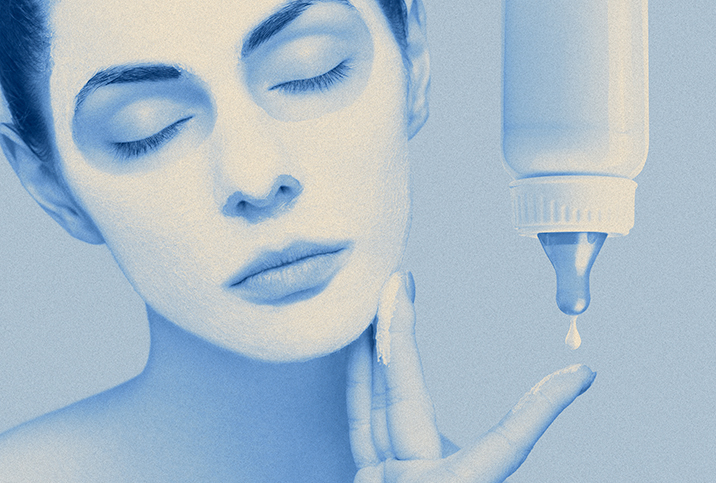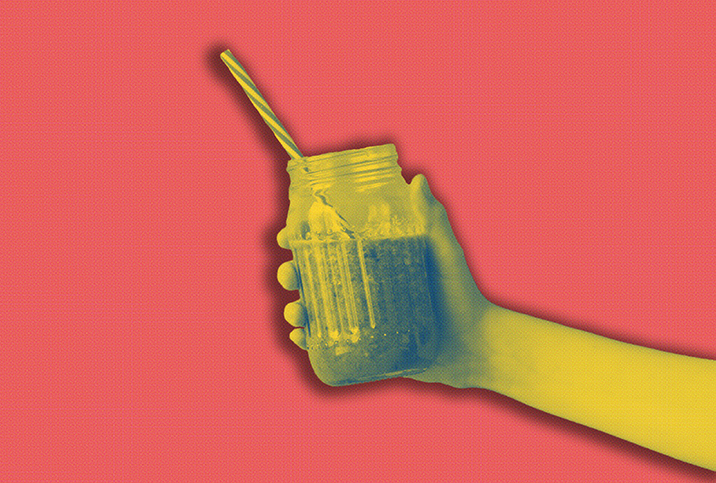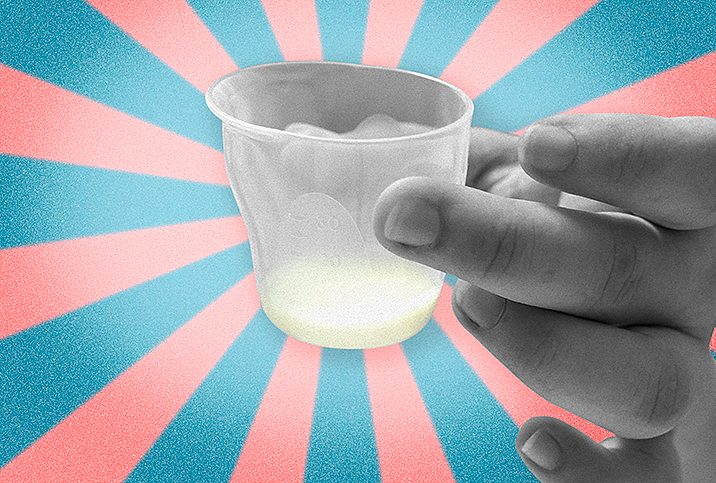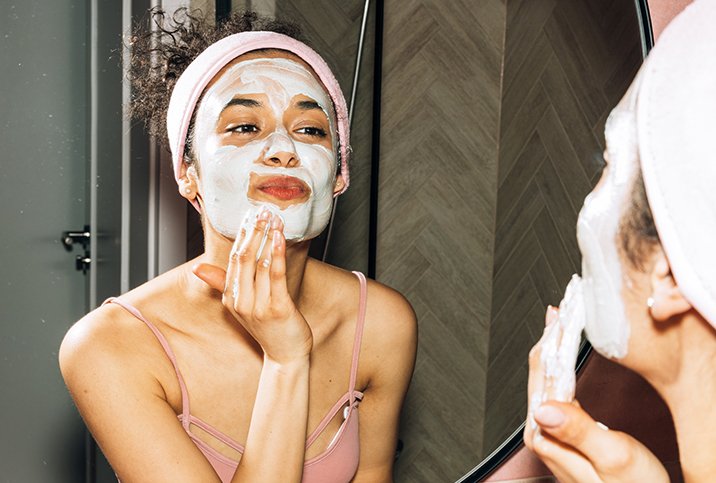What's the Deal With Breastmilk Face Masks?

With the current global pandemic, face masks have become part of our everyday lexicon. For beauty gurus, though, face masks will first and foremost be a skincare product. Depending on what you're looking to achieve, sheet masks can hydrate, exfoliate or dry out your skin. They typically consist of water, hyaluronic acid, ceramides and/or antioxidants. The face-shaped fabric—which has an opening for your eyes and mouth—will absorb into your face.
While face masks are a pretty common step in a beauty routine, when this mom on TikTok went viral (6.1 million views) for her video about creating a breastmilk face mask for her baby, the Internet and experts alike were shocked. "When your baby has acne so you make a breastmilk mask for him," the mom (who goes by ahlingaling on TikTok) captioned the clip. The baby is seen sleeping peacefully as his mom puts the face mask on his face. When the mask is removed, his face looks glowy and soft.
@ahlingaling When your baby has acne so you make a breastmilk mask for him. 😍 #baby #babiesoftiktok #fyp #levi #babyhack #alphathalassemia #survivor #skincare
♬ Banana (feat. Shaggy) [DJ FLe - Minisiren Remix] - Conkarah
Neonatal acne is a common occurrence for newborns, and according to the American Academy of Dermatology Association, approximately 20 percent of babies have acne. Most babies with neonatal acne will break out at 2 weeks of age, and some babies are even born with pimples—but it's nothing for parents to worry about.
"They were red and raised before and now the redness has subsided," the TikTok mom wrote when someone asked for a before picture of the baby's skin condition. Some people pointed out that newborn acne is normal and generally caused by maternal hormones or an external irritant. In response to her critics, the mom said she knows that the bumps would have gone away on their own. "The mask was for funsies vs using a cotton ball to wipe milk on him. Great bonding moment for us too," she said.
The benefits of topical breast milk
Breast milk has been used to treat a variety of skin conditions, especially when access to a physician and medicine was limited, but actual research is limited. "There are only a few randomized controlled trials out there that have looked at breast milk for the treatment of diaper dermatitis and atopic dermatitis, and the results are mixed," said Loren Franco, M.D., FAAD.
'It looks like a major choking/breathing hazard. I would NOT recommend putting a sheet mask on a baby, no matter what it contains.'
"Two of these studies have shown similar benefits when compared to low potency OTC hydrocortisone 1% for treating mild eczema and diaper rashes, while another study showed no improvement. In these studies, breast milk was applied directly to the skin after every feed. There is no need to use a face mask. No studies have been done yet looking at its use for neonatal or infantile acne," Franco concluded.
The reason people have used breast milk as a skincare product is because it's high in lauric acid, which has been shown in animal studies to combat acne. "Public health nurses have reported on the effects of fresh colostrum and human milk as a treatment for conjunctivitis, chapped nipples, rhinitis, infections of the skin and soft tissues," explained Alexis Parcell, M.D., board-certified plastic surgeon and founder of SUNNIE.
The milk may work—but lose the mask
While breastmilk can be an inexpensive, natural and even beneficial alternative for yours or your baby's face (depending on the severity of the skin condition), Franco does not recommend putting a sheet mask on an infant's face.
"It looks like a major choking/breathing hazard. I would NOT recommend putting a sheet mask on a baby, no matter what it contains," she cautioned. "Neonatal acne is temporary and resolves on its own within weeks to months. There are very effective medications that can be safely administered."
Ultimately, applying breast milk to a baby's skin or your own isn't harmful—but it depends on how you apply it. Directly to the skin is safer than using any sort of mask on your baby. If your baby's rash worsens or doesn't improve, it's definitely time to see a doctor.


















